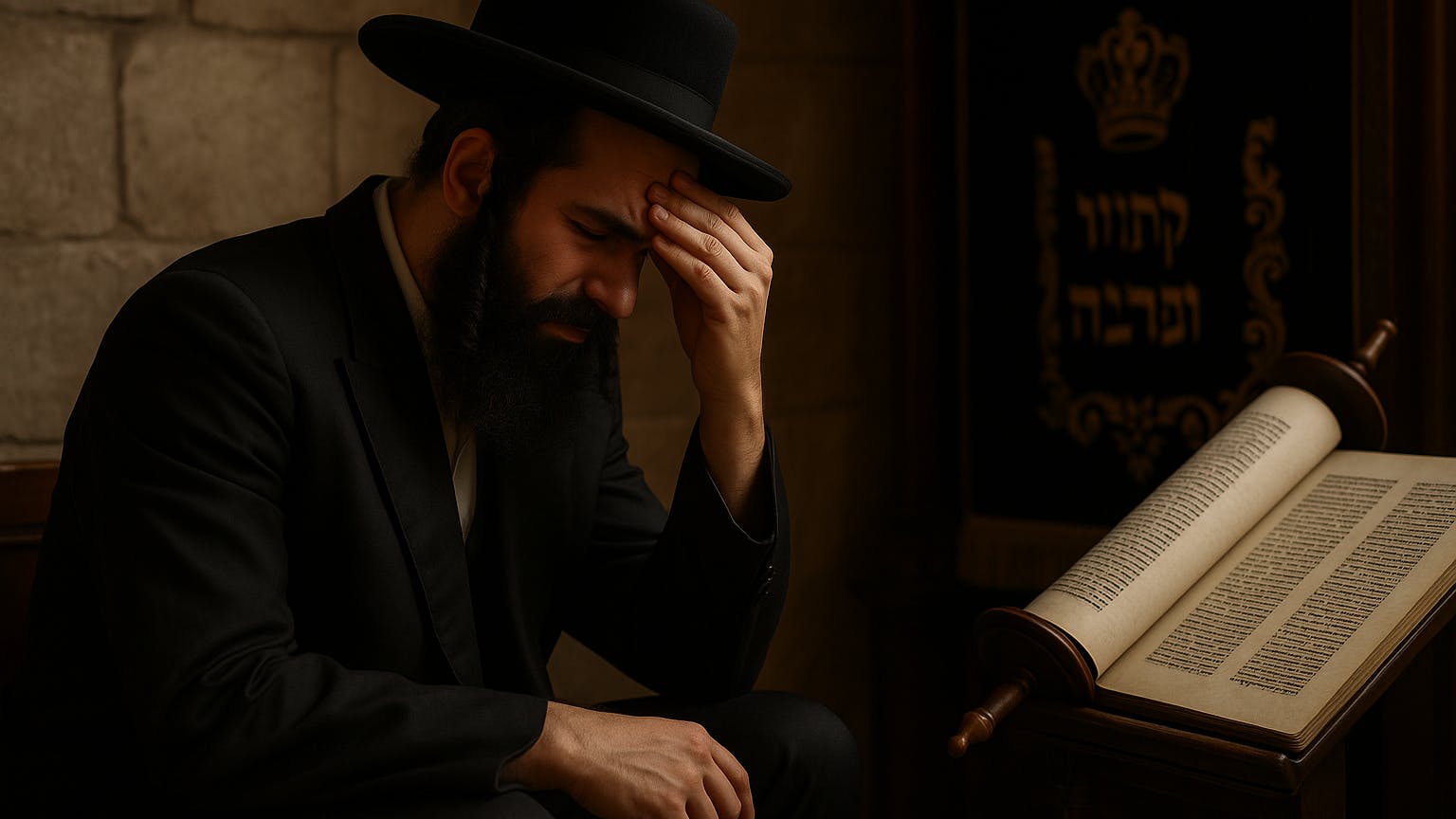With conflict brewing in the north of Israel with Hezbollah, many Israelis are becoming increasingly conscious of the hardship that war can entail. Beyond the certainty of casualties among troops and civilians, recently, a senior electricity official warned that Israel was unprepared for a full-scale war, and government ministries in Israel are preparing for infrastructure to be hit hard.
Anxious thoughts may turn to wondering about how individuals and families can prepare themselves for such a scenario. Recent drone footage from Hezbollah and the missiles sent by Iran in April have served to highlight the military capabilities of Israel’s foes, who boast equipment far more advanced than Hamas.
In war, no guarantees can be given for one’s own survival. Death is a real possibility, and while we would naturally desire at least 70 or 80 years on earth, in war, practically anyone is susceptible to bombs and attacks. Yet while the body will die, the soul won’t; it is immortal. But how do we know that the soul is immortal? God has told us so in his Word, and shown us in nature.
Immortality of the soul is a doctrine of the Tanakh. This has been evident since the creation of man, where we read in the Torah: Genesis 2:7
Genesis 2:7
And the Lord God formed man of the dust of the ground, and breathed into his nostrils the breath of life; and man became a living soul.
So man’s life not only included his animalistic instincts, but also his immortal soul. Many rabbis have spoken of man as "olam katan" -- a mini-world. And for centuries, philosophers and theologians have referred to man as a “microcosm,” that is: the universe in miniature, being contained in one form.
Israeli atheist Yuval Noah Harari has recently claimed: “We humans should get used to the idea that we are no longer mysterious souls – we are now hackable animals” and has sought to turn man into merely a biological machine that can receive upgrades like a computer. Yet the existence of the eternal soul is so obvious when one considers the conscience that compels us to consider morality, accuses us when we sin, makes us aware of good and evil – abstract concepts beyond any mere animal – and vindicates us when we do right. As we read in Romans 2:14-15:
Romans 2:14-15
“For when the Gentiles, which have not the law, do by nature the things contained in the law, these, having not the law, are a law unto themselves: 15 which shew the work of the law written in their hearts, their conscience also bearing witness, and their thoughts the mean while accusing or else excusing one another”
We also know that we are capable of love and hatred, that we have wills and minds, and that we are moved by abstract concepts such as truth and beauty. When we think of the soul, we should realize that it is not composed of any earthly elements, but rather, is spiritual, yet of course real. As it is not composed of parts, it is simple and eternal. All of this shows man to have a part of him that is more than earthly, and this more-than-earthly part, the soul, must necessarily live forever, as that which is not temporary and earthly will live forever – in heaven or in hell.
God repeatedly indicates the eternity of the soul to us in Scripture. When Adam sinned, he died, as God had prophesied in Genesis 2:17
Genesis 2:17
“But of the tree of the knowledge of good and evil, thou shalt not eat of it: for in the day that thou eatest thereof thou shalt surely die.”
This was not the death of his body, but rather, a spiritual death setting his eternal soul on the path to hell. For when an eternal soul breaks God’s eternal law instituted by the eternally unchanging God, the only just and possible consequence is eternal death in hell – hence
This judgment is affirmed in Ecclesiastes 12:14:
Ecclesiastes 12:14
“For God shall bring every work into judgment, with every secret thing, whether it be good, or whether it be evil.”
The preacher Solomon in Ecclesiastes teaches us about our eternal souls, and their existence in eternity after death. Ecclesiastes 3:21 reads:
Ecclesiastes 3:21
“Who knoweth the spirit of man that goeth upward, and the spirit of the beast that goeth downward to the earth?”
And
Ecclesiastes 12:7
“Then shall the dust return to the earth as it was: and the spirit shall return unto God who gave it.”
And yet we are powerless to prevent death when it comes, as per Ecclesiastes 8:8:
Ecclesiastes 8:8
“There is no man that hath power over the spirit to retain the spirit; neither hath he power in the day of death: and there is no discharge in that war; neither shall wickedness deliver those that are given to it.”
So while Hezbollah would cause you to think of bodily death, God may use these circumstances to cause you to think of spiritual death, and the eternity of your soul. Don’t worry about dying or not; be concerned with your soul. As Christ says:
Matthew 10:28
“And fear not them which kill the body, but are not able to kill the soul: but rather fear him which is able to destroy both soul and body in hell.”
If your conscience is telling you that you’ve sinned before God, then repent like the tax collector who cried:
And
trusting in the Messiah’s atoning death on the cross. You can see for yourself by reading the gospels, and then reading Isaiah 53, Psalm 22, Micah 5:2, Isaiah 7:14, 9:6, and Daniel 9:24-27 for yourself.
Neither fear bodily war, nor the judgment of your own friends and family for believing in the Messiah whom they reject – but instead, contemplate the destination of your mortal soul, as God has graciously warned you in the Bible, and receive Jesus Christ by grace through faith in him, by the power of the Holy Spirit.
Then you could say with David (Psalm 31:5):
and indeed because of Jesus the Messiah who quoted these words on the cross (Luke 23:46).
More Topics
You might alsoo be interested in these topics.




